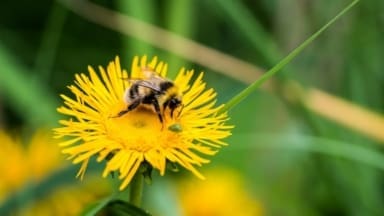
The Pesticide Collaboration is hosted by PAN UK and the RSPB, bringing together health and environmental organisations, academics, trade unions and others, working under a shared vision to reduce pesticide-related harms in the UK.
According to the collaboration, committing to a phase-out is a tangible and achievable action for the new government, to support biodiversity in towns and cities whilst also protecting human health. France, Denmark and Luxembourg have already banned the use of pesticides in urban areas, they say proves that it is possible to manage these spaces with non-chemical alternatives.
A reported 100 councils across the UK have either ended their use of pesticides or taken significant steps towards doing so (50 are entirely pesticide-free). The Pesticide Collaboration say that this is significant and demonstrates a strong desire amongst councils to reduce local residents’ exposure to chemicals and protect the environment. Pesticide use in urban areas only constitutes approximately 10% of the UK’s total usage, but it is the second most common route through which people are exposed to pesticides (after diet).
The Pesticide Collaboration calls for support, funding and advice for local councils to make the journey to going pesticide-free easier. “We are in the midst of a nature crisis and the overuse of pesticides by councils is destroying many of the areas where wildlife forage for food. These chemicals contaminate water courses and harm aquatic life. They also undermine many of the efforts undertaken by local residents to improve biodiversity in urban areas,” they explain.
A petition in support of the #GoPesticideFree campaign has been setup, which to date 4065 people have signed. A total of 5000 signatures are required.

